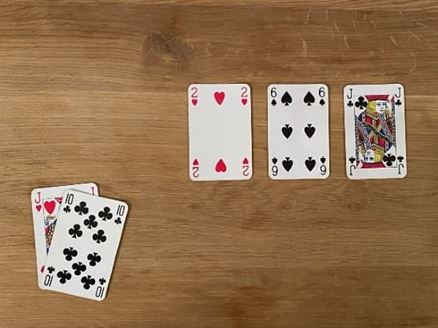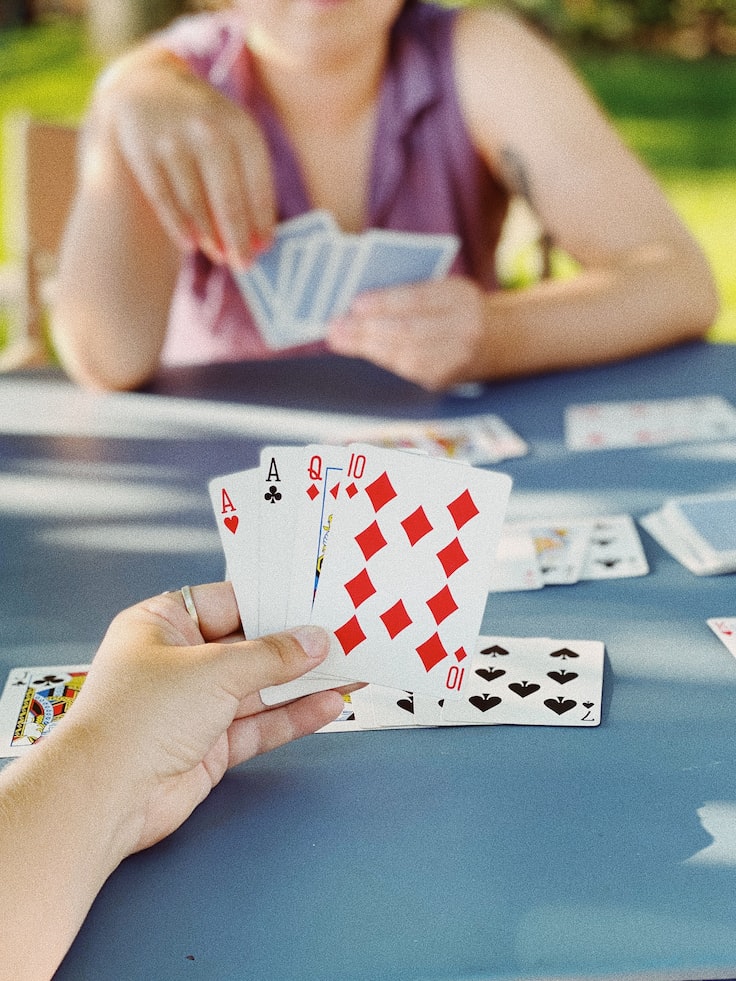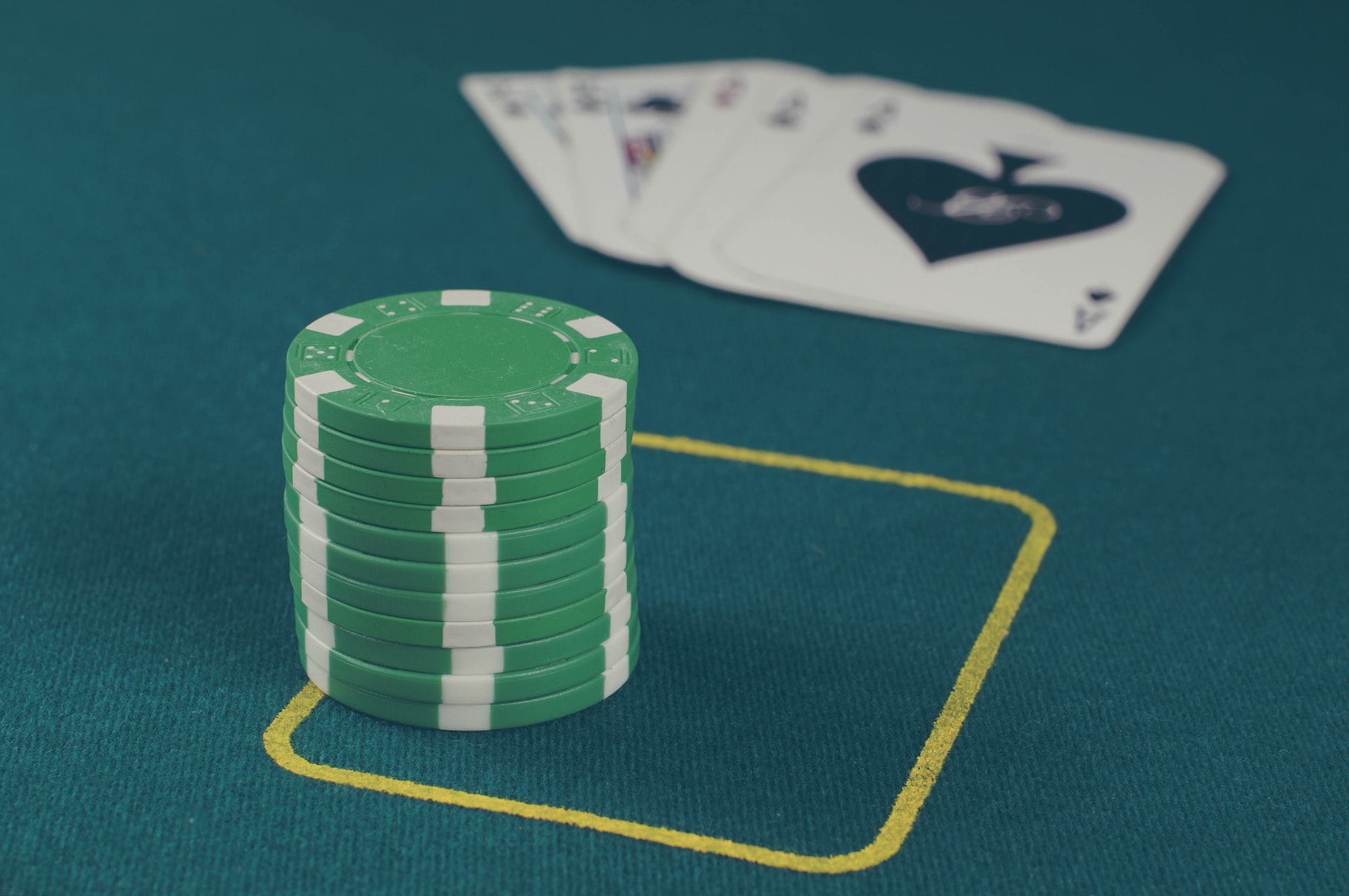Here are some top poker psychology books that can help improve your mental game:
1. “The Mental Game of Poker” by Jared Tendler and Barry Carter
2. “Peak Poker Performance” by Dr. Patricia Cardner
3. “The Poker Mindset” by Ian Taylor and Matthew Hilger
4. “Zen and the Art of Poker” by Larry Phillips
5. “Elements of Poker” by Tommy Angelo
These books cover a range of topics including emotional control, tilt management, focus, and decision-making skills. By reading and applying the principles outlined in these books, you can improve your mental game and become a more successful poker player.
The Mental Game of Poker by Jared Tendler and Barry Carter
Poker is a game of skill, strategy, and psychology. While mastering the technical aspects of the game is important, understanding the mental game of poker is equally crucial. The ability to control your emotions, read your opponents, and make rational decisions under pressure can make all the difference between winning and losing. That’s why many professional poker players recommend reading books on poker psychology to improve your mental game.
One of the most highly recommended books on poker psychology is “The Mental Game of Poker” by Jared Tendler and Barry Carter. This book is a comprehensive guide to the mental aspects of poker, covering everything from tilt control to confidence building. The authors draw on their extensive experience working with professional poker players to provide practical advice and exercises that can help players of all levels improve their mental game.
One of the key concepts in the book is the idea of “tilt,” which refers to the emotional state of a player when they are experiencing frustration, anger, or other negative emotions. Tilt can be caused by a variety of factors, such as bad beats, losing streaks, or even personal issues outside of the game. The authors provide strategies for recognizing and controlling tilt, such as taking breaks, using relaxation techniques, and reframing negative thoughts.
Another important aspect of the mental game of poker is confidence. The authors argue that confidence is essential for success in poker, as it allows players to make bold moves and take calculated risks. However, building confidence can be challenging, especially for players who have experienced setbacks or losses. The book provides exercises and techniques for building confidence, such as visualization, positive self-talk, and goal-setting.
The authors also emphasize the importance of focus and concentration in poker. They argue that distractions, such as social media or other players’ behavior, can negatively impact a player’s performance. The book provides strategies for improving focus, such as setting priorities, eliminating distractions, and using mindfulness techniques.
Overall, “The Mental Game of Poker” is a must-read for any serious poker player who wants to improve their mental game. The authors provide practical advice and exercises that can help players of all levels overcome common mental obstacles and achieve peak performance. Whether you’re a beginner or a seasoned pro, this book is an invaluable resource for mastering the mental game of poker.
In conclusion, poker psychology is a crucial aspect of the game that is often overlooked by novice players. Reading books on poker psychology can help players improve their mental game, which can ultimately lead to more success at the table. “The Mental Game of Poker” by Jared Tendler and Barry Carter is one of the top books on poker psychology, providing practical advice and exercises for improving tilt control, confidence, focus, and more. If you’re serious about improving your poker game, this book is a must-read.
Peak Poker Performance by Dr. Patricia Cardner
Poker is a game of skill, strategy, and psychology. While many players focus on improving their technical skills, it’s equally important to develop a strong mental game. The ability to read opponents, manage emotions, and make rational decisions under pressure can make all the difference in winning or losing a hand. That’s why many professional players turn to psychology books to improve their game.
One of the top books recommended by poker players and coaches is “Peak Poker Performance” by Dr. Patricia Cardner. This book offers practical advice and exercises to help players develop a winning mindset. Dr. Cardner is a licensed professional counselor and a mental game coach for poker players. She draws on her experience in both fields to provide insights into the psychological challenges of poker and how to overcome them.
One of the key themes of “Peak Poker Performance” is the importance of self-awareness. Dr. Cardner emphasizes the need for players to understand their own strengths and weaknesses, as well as their emotional triggers. By recognizing these factors, players can make better decisions at the table and avoid tilt – the emotional state that leads to irrational play and costly mistakes.
Another important concept in the book is the idea of “playing in the zone.” This refers to the state of mind where players are fully focused and in control of their actions. Dr. Cardner provides strategies for achieving this state, such as setting clear goals, managing distractions, and using visualization techniques. By learning to play in the zone, players can improve their performance and increase their chances of winning.
“Peak Poker Performance” also covers topics such as table image, bluffing, and bankroll management. Dr. Cardner provides practical advice on how to project a strong image at the table, how to bluff effectively, and how to manage your bankroll to avoid going broke. These skills are essential for any serious poker player, and Dr. Cardner’s insights can help players develop them more effectively.
Overall, “Peak Poker Performance” is a valuable resource for anyone looking to improve their mental game in poker. Dr. Cardner’s expertise in both psychology and poker makes her insights particularly relevant and useful. Whether you’re a beginner or an experienced player, this book can help you develop the skills and mindset needed to succeed at the table.
Of course, “Peak Poker Performance” is just one of many psychology books that can help players improve their game. Other popular titles include “The Mental Game of Poker” by Jared Tendler and “The Psychology of Poker” by Alan N. Schoonmaker. Each of these books offers a unique perspective on the psychological challenges of poker and how to overcome them.
Ultimately, the key to improving your mental game in poker is to be open to learning and willing to put in the work. Reading psychology books can provide valuable insights and strategies, but it’s up to the individual player to apply them effectively. By developing a strong mental game, players can gain a competitive edge and increase their chances of success at the table.
The Poker Mindset by Ian Taylor and Matthew Hilger
Poker is a game of skill, strategy, and psychology. While mastering the technical aspects of the game is important, understanding the psychological aspects is equally crucial. The ability to read your opponents, control your emotions, and make rational decisions under pressure can make all the difference in winning or losing a hand. That’s why many professional poker players recommend reading books on poker psychology to improve your mental game.
One of the top books on poker psychology is “The Poker Mindset” by Ian Taylor and Matthew Hilger. This book delves into the mental aspects of the game and provides practical advice on how to develop a winning mindset. The authors emphasize the importance of having a positive attitude, managing your emotions, and staying focused on the game.
The book begins by discussing the common mental traps that poker players fall into, such as tilt, fear, and overconfidence. The authors explain how these emotions can cloud your judgment and lead to poor decision-making. They then provide strategies for overcoming these mental obstacles, such as taking breaks, practicing mindfulness, and using positive self-talk.
Another key aspect of the book is the importance of developing a strong work ethic. The authors stress that success in poker requires discipline, dedication, and hard work. They provide tips on how to set goals, create a study plan, and track your progress. They also emphasize the importance of reviewing your play and learning from your mistakes.
One of the most valuable sections of the book is the chapter on tilt. Tilt is a common problem for poker players, and it can be difficult to overcome. The authors provide a detailed analysis of the different types of tilt and offer practical advice on how to avoid them. They also provide strategies for getting back on track when you do experience tilt, such as taking a break, refocusing on your goals, and using relaxation techniques.
Overall, “The Poker Mindset” is a comprehensive guide to developing a winning mindset in poker. The authors provide practical advice on how to overcome mental obstacles, develop a strong work ethic, and stay focused on the game. The book is written in a concise and serious style, making it easy to read and understand.
In conclusion, if you’re serious about improving your poker game, reading books on poker psychology is a must. “The Poker Mindset” by Ian Taylor and Matthew Hilger is one of the top books in this category. It provides practical advice on how to develop a winning mindset, overcome mental obstacles, and stay focused on the game. By applying the strategies outlined in this book, you can improve your mental game and increase your chances of winning at the poker table.
Positive Poker by Dr. Patricia Cardner and Jonathan Little
Poker is a game of skill, strategy, and psychology. While many players focus on improving their technical skills, it’s equally important to develop a strong mental game. This is where poker psychology books come in. These books offer insights into the psychological aspects of the game, helping players to understand their own thought processes and those of their opponents. In this article, we’ll take a look at one of the top poker psychology books on the market: Positive Poker by Dr. Patricia Cardner and Jonathan Little.
Positive Poker is a comprehensive guide to developing a positive mindset for poker players. The book is divided into three sections: Mindset, Emotions, and Behavior. Each section covers a different aspect of the mental game, providing practical advice and exercises to help players improve their performance at the table.
The first section, Mindset, focuses on the importance of developing a positive attitude towards the game. The authors argue that a positive mindset is essential for success in poker, as it helps players to stay focused, motivated, and resilient in the face of adversity. They provide a range of strategies for developing a positive mindset, including visualization, goal-setting, and positive self-talk.
The second section, Emotions, explores the role of emotions in poker. The authors argue that emotions can be both a help and a hindrance to players, depending on how they are managed. They provide practical advice on how to manage emotions such as anger, frustration, and anxiety, and how to use emotions such as excitement and enthusiasm to your advantage.
The third section, Behavior, focuses on the importance of developing good habits and routines for poker players. The authors argue that good habits and routines can help players to stay focused, disciplined, and consistent in their play. They provide practical advice on how to develop good habits and routines, such as setting a schedule for study and practice, and creating a pre-game routine to help you get into the right mindset for play.
Throughout the book, the authors provide real-life examples and case studies to illustrate their points. They also provide exercises and worksheets to help readers apply the concepts they have learned to their own game. The writing style is concise and easy to follow, making it accessible to players of all levels.
One of the strengths of Positive Poker is its focus on the positive aspects of the mental game. The authors argue that too often, players focus on the negative aspects of the game, such as tilt and bad beats, rather than on the positive aspects, such as learning and growth. By focusing on the positive aspects of the game, players can develop a more resilient and optimistic mindset, which can help them to perform better in the long run.
Overall, Positive Poker is an excellent resource for poker players looking to improve their mental game. The book provides practical advice and exercises for developing a positive mindset, managing emotions, and developing good habits and routines. Whether you’re a beginner or an experienced player, this book is sure to help you take your game to the next level.Conclusion: The top poker psychology books can help players improve their mental game and increase their chances of winning. These books cover a range of topics, including emotional control, decision-making, and reading opponents. By incorporating the strategies and techniques outlined in these books, players can develop a stronger mindset and become more successful at the poker table. Some of the top poker psychology books include “The Mental Game of Poker” by Jared Tendler, “Peak Poker Performance” by Dr. Patricia Cardner, and “The Psychology of Poker” by Alan N. Schoonmaker.





